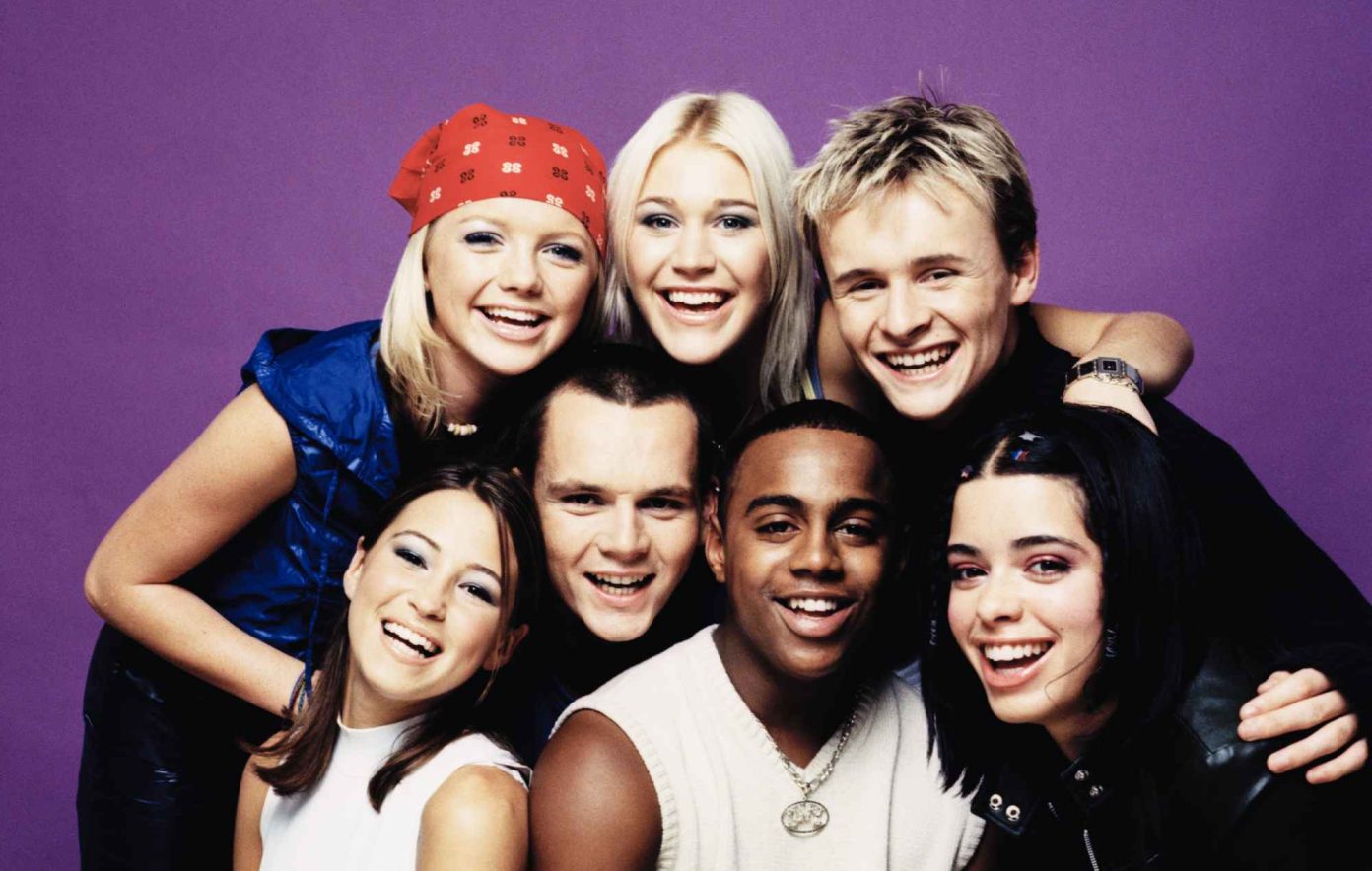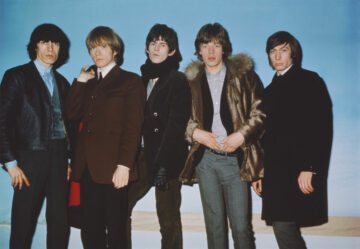Last week came the surprise announcement of S Club 7’s full-band reunion, with a UK tour to commemorate 25 years of existence this October. This news has been met with a nationwide buzz from former fans, willing to cough up any amount of their hard-earned money for a chance to relive the innocence and optimism of their childhood selves.
The band split in 2003 after five years of bubblegum pop success – but haven’t exactly left the spotlight in subsequent years. It seems they’ve cashed in on their legacy numerous times, from solo appearances on Celebrity specials of British television’s finest (First Dates, Mastermind, Masterchef and Strictly Come Dancing), to regular reunions of two or three members for appearances at student club nights. The latest full-band reunion isn’t even their first, with the seven-piece having put on shows in 2015 on a commercially successful reunion tour identical to their upcoming one.
In fact, getting the band back together seems to be the most à-la-mode thing to be doing right now. Take N-Dubz’s raucous recent comeback tour, after an 11-year hiatus, with the shows only exemplifying how frontman Dappy still hasn’t learnt how to behave, or the rumours of a Spice Girls reunion for King Charles III’s coronation – arguably a desperate ploy from the monarchy to get the nation’s anti-royalists to tune in.
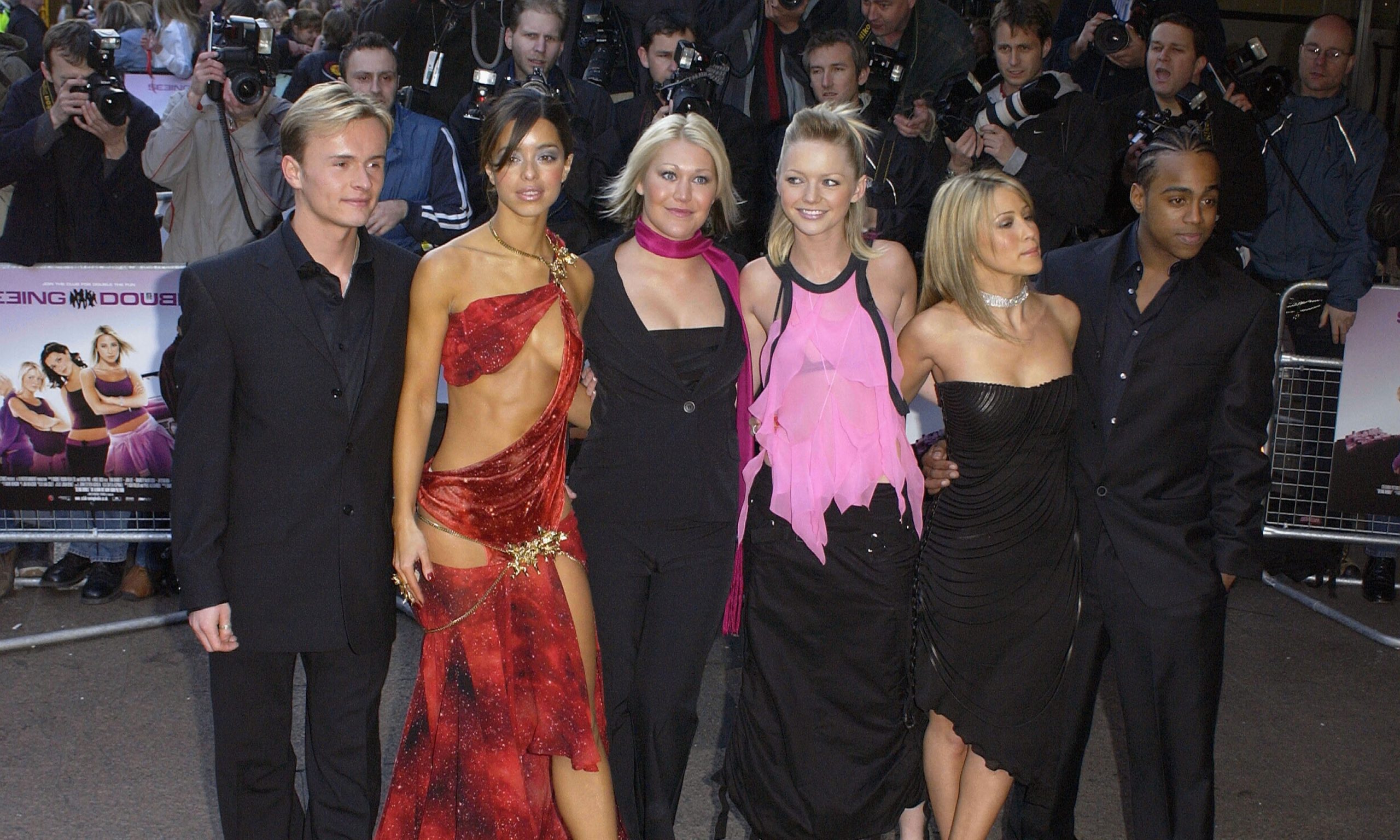
S Club 7 members, Jon Lee, Tina Barrett, Jo O’Meara, Hannah Spearritt, Rachel Stevens and Bradley Mcintosh in 2003. Photo: Bruno Vincent.
There’s no surprise that S Club 7 would join the bandwagon too, especially in light of the revival of the early noughties, with trends in fashion and music firmly planted in this epoch, following the typical cyclical nature of borrowing styles of previous eras. This popularity can be whittled down to a universal desire for teleportation to the good ol’ days.
Hayley Williams of Paramore cited this Y2K resurgence as a natural reaction to the “frustration in the air”. Amongst the late-nineties, early-noughties indie-rock revival, S Club 7 may be overlooked as a response to this frustration, but dig a little deeper, and it’s an adequate soundtrack to relieve oneself from the stresses of the modern world. Band member Bradley McIntosh endorsed this in an upcoming tour promo interview with the One Show, saying: “Our music is very positive, and I think in today’s times you need a bit of positive, you need to be picking up so that’s what we’re here to do.”
Even in the brief moments of catharsis in the S Club 7 discography, such as ‘Have You Ever’ or ‘Never Had a Dream Come True’, any such lyrical depth is cancelled out by the simple cheesiness of it. Getting in your feels to it only comes from the standpoint of post-irony.
To quote Susan Sontag’s definition of ‘camp’ as something that is “disengaged, depoliticised”, I have no doubt this is the essence of S Club 7’s charm and, in turn, their revival; any engagement with the turmoil of the modern day leaves you irritated – the “frustration” Hayley Williams referred to. Detachment seems to be the most viable solution.
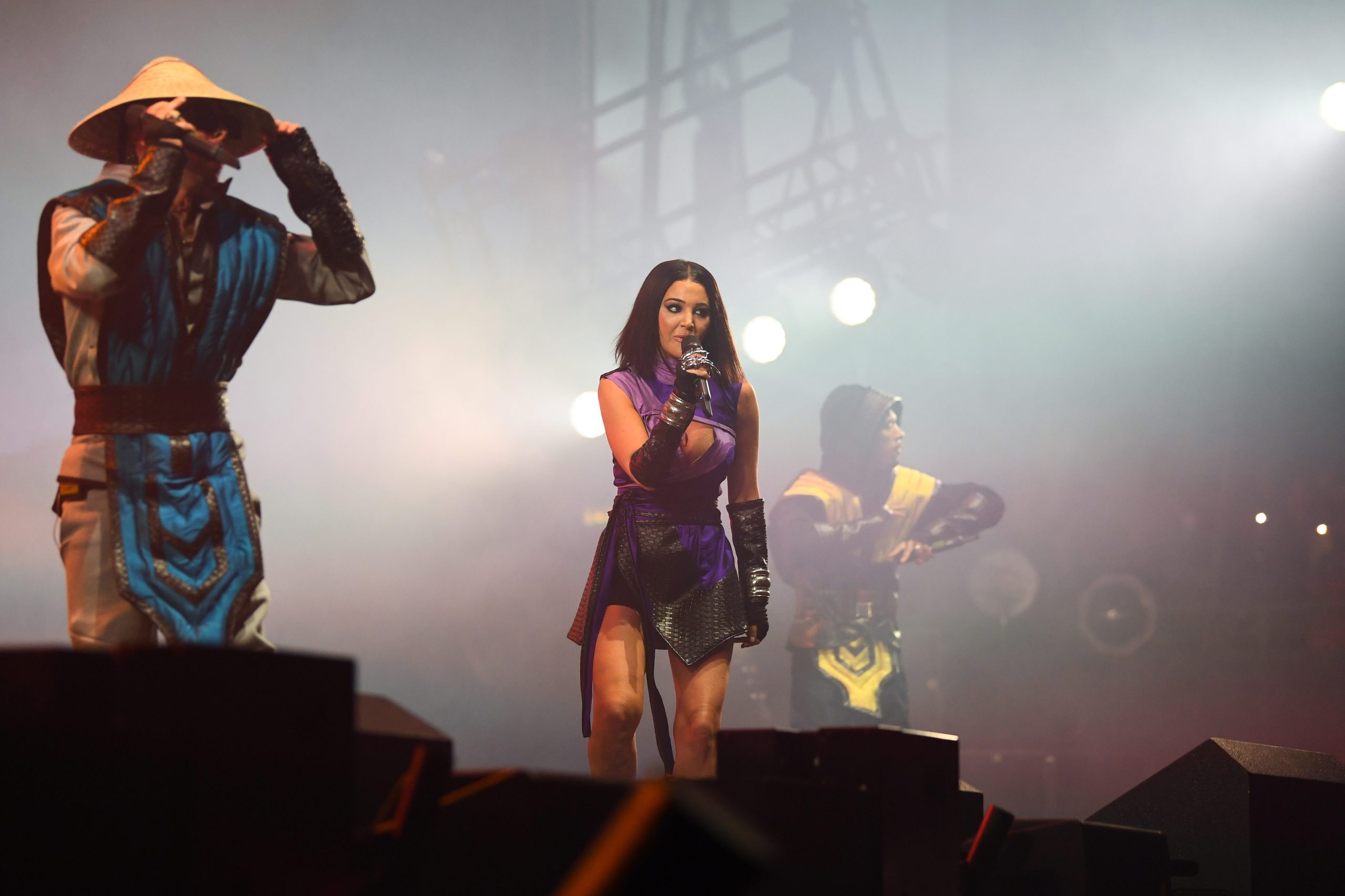
N-Dubz have recently pulled off a successful comeback tour.
In the name of camp, it’s only right to surrender to the absurdity of listening to “reach for the stars, climb every mountain higher” to ease the mind from a world of post-pandemic depression and corruption. Maybe more often, “when the world is on your shoulders”, we should all take a leaf out of S Club’s book to simply “smile and let it go”. They were, you could say, philosophers ahead of their time.
The bubblegum pop era was designed to be listened to superficially. With squeaky-clean production, the catchiest of melodies and the innocent optimism of lyrics, it’s nothing short of escapism. Hence why many of the pop-girlies of today, including Dua Lipa, Charli XCX, PinkPantheress and Lorde, are digging back to these roots in their approach to production and lyricism. It’s an ode to the high camp, artificialness of it all.
Going feral in the name of noughties nostalgia was epitomised at last year’s Glastonbury when the Sugababes set shut down the festival’s Avalon field due to unprecedented overcrowding. I also saw Sugababes a couple of weeks ago at their intimate Brits Week gig for Warchild. Their set was full of nostalgic, definitely-not-guilty pleasures met with universal roars, whilst the handful of newer, unrecognisable tracks they weaved into the setlist were met with crickets.
In these unique circumstances, the people showed up for the original hits – the artefacts of their youth – not necessarily to see an artist’s growth and be reminded of their own ageing. Under the name of ‘reunion’, a band will only be confined to their past.
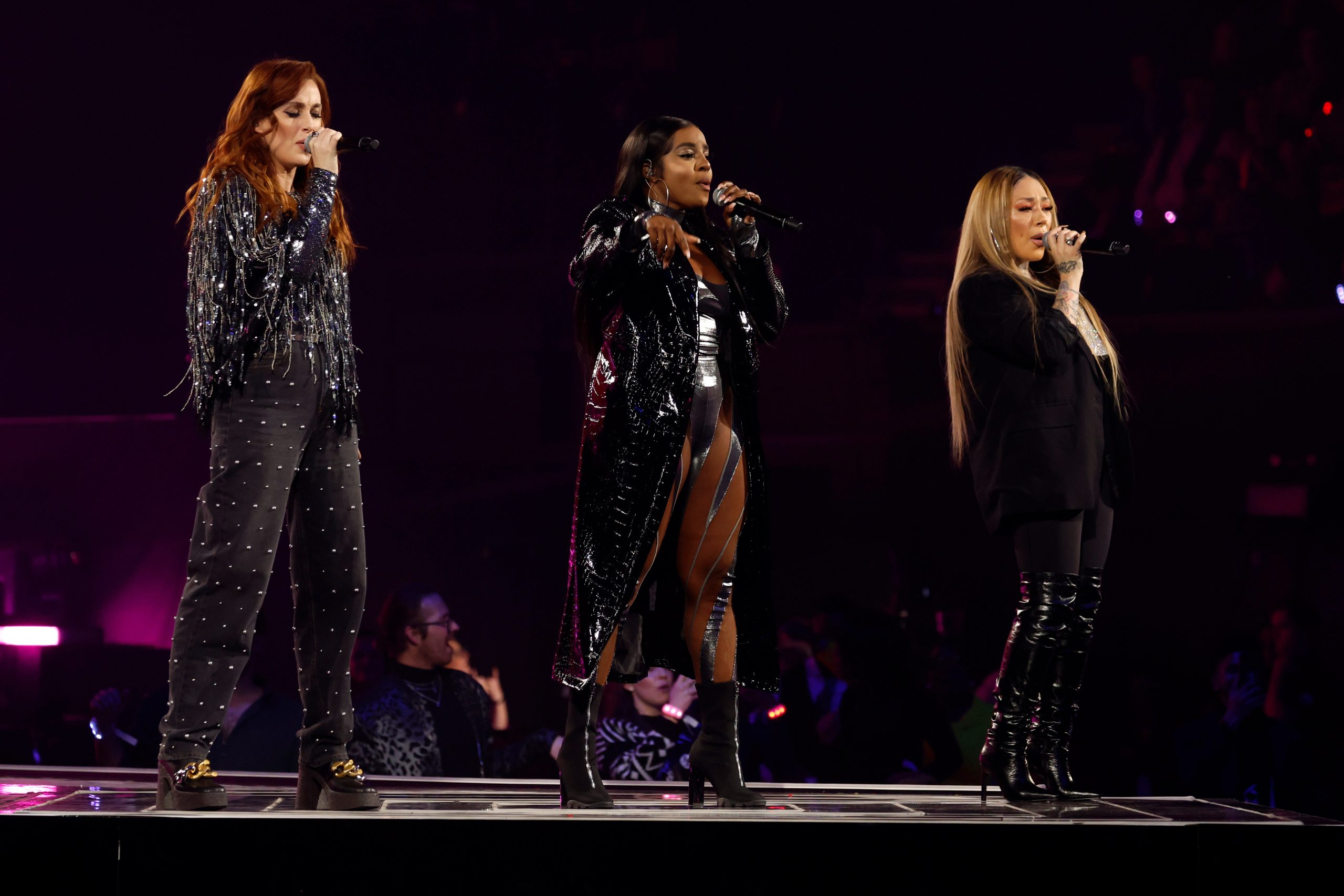
…and Sugababes managed to shut down Glastonbury last year.
Being stuck in the rut of touring with music that’s 20 to 25 years old must grow tiresome, and on top of that, for music as juvenile as S Club 7’s, singing and dancing to them must feel a bit degrading when you’re in your 40s. Undoubtedly, there has to be a solid financial incentive in the midst of it all.
As a reminder of this, the recent announcement of S-Club 7’s tour saw a re-emergence of the clip of their iconic, tumultuous exit interview, which sees Claudia Winkleman sit down with the remaining four members, Jo, Bradley, Hannah and Jon, to discuss the break-up; the conversation took an awkward turn when Winkleman “talks cash”, asking if the band were upset with the amount band manager Simon Fuller made, with an alleged figure of “90 million in the bank”, in comparison to their much lesser “mint”. Their PR manager was having none of it and entered full Karen mode to call off the interview, as it was clearly a subject too touchy to be discussed.
More recently, in a recent interview with The Sun, band member Hannah Spearritt reported that she only earned £600k over her four years in S Club 7. Comparing their earnings to manager Fuller’s alleged “90 million” must be a bit of a blow for the band, especially after their whopping ten million album sales over the course of that time and 90 million viewers of their infamous television show.
Sadly, this financial inequality between artists and management is commonplace in the music industry. TLC referenced this in an interview with The Guardian as the unforgettable moment they were “millionaires for literally five minutes” before they had to sign it back to their former manager, steering the conversation away from the subject quickly as they were still in a lawsuit.

Current pop-girlies of today, including Charli XCX, are digging back to Y2K roots in their approach to production and lyricism.
Queen’s legendary diss-track ‘Death on Two Legs (Dedicated to…)’, about the band’s fallout with former manager and Trident Studios owner Norman Sheffield, is also a great example. These economic disparities often see artists short-changed and simultaneously in a tricky position, unable to speak on the matter publicly due to legalities.
It’s no wonder S Club 7 have been squeezing out their commercial cache for as long as it is viable. As individuals, they need to make that “mint” they were cheated of back in their heyday, and with a current Y2K revival, it’s best to strike while the iron’s hot. Ultimately, it’s a win-win situation; the band cash in on their legacy as noughties icons, and fans can go wild to the anthems of their childhood. After all, there ain’t no party like an S Club party (it had to be done).

